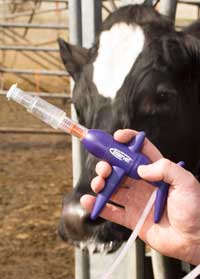Cost-sharing: Industry leaders dismayed

Livestock industry leaders explain how DEFRA‘s animal health cost-sharing proposals will impact upon their sector.
Peter Morris, National Sheep Association chief executive

“There are serious questions to be asked as to why farmers are being asked to pay for exotic disease surveillance, when by their very nature they are outside of farmers’ control. There would be industry benefits from endemic disease surveillance, but very little gain from exotic disease surveillance.
“There is also the issue of the threshhold flock size below which sheep keepers will be exempt from paying the levy. Many larger commercial farmers, who are the mainstay of the industry, will feel aggrieved that they have to pay while those who whose to keep sheep as a hobby will not have to foot the bill.
“Additionally, it is difficult to see how these proposals can be dealt with in a devolved manner when there are significant numbers of cross-border holdings and large amounts of cross-border trade.”
Lyndon Edwards, RABDF

“Its disgraceful to say we should work together and share costs, but not have much sharing of responsibility when it comes to diseases.
“The government is inflicting disease upon us by mismanaging TB and allowing the import of bluetongue-infected stock, while the foot-and-mouth debacle was their fault. Yet we are expected to pay.
“The levy will add another 0.1p/litre to the cost of producing milk, which is another major kick in the teeth. We are losing 13 dairy businesses a week, we are way under production and we are importing milk.
“The whole thing is wrong. The disease problem in the UK is such that it’s a major disincentive for livestock farming.
“This will have an effect on the industry, as dairy farmers will wonder what the point of carrying on is. Farmers are already looking for excuses to get out of the industry and this could be it.”
Rob Newbery, NFU chief poultry adviser

“The 4p a bird levy is an awful lot of money for a poultry producer to pay. The UK poultry industry has evolved to be an efficient, biosecure and responsible industry.
“Producers spend thousands every year minimising the risk of disease. When you look at the costs incurred, producers are already meeting DEFRA at least half way when it comes to preventing and controlling exotic disease.
“Therefore, it’s clear the annual levy for surveillance and disease prevention to producers should be zero.
“You also have to remember that the government has its own responsibility for controlling exotic diseases, such as avian flu, for human health reasons. It surely isn’t right that the industry bears this cost.
“Regarding controlling outbreaks, the industry will have to take a closer look at the proposals.
“Many believe the capability already exists within the industry to efficiently, and at a lower cost, stamp out disease. Before we look at passing the buck of who pays, we should first look at how costs could be reduced.”
Kim-Marie Haywood, National Beef Association chief executive

“We are fundamentally against any extra costs, levies or taxes. Our view is that by looking at efficiencies we should reduce spending on both government and industry and shouldn’t need an extra levy.
“With regards to the responsibility-sharing body, we have concerns about who is accountable, how decisions and changes are made and how people are appointed to it.
“The industry already does a lot of biosecurity and surveillance and has already absorbed a huge amount of cost and responsibility. A £1.40 levy for beef farmers won’t have a major impact on that. Preparing for diseases is a massive cost and a lot of the controls are in place to protect public health. The costs should shared with the government.
“If this is a partnership, then the government’s definition of partnership and sharing is different to the industry’s.”
Barney Kay, National Pig Association general manager

“We are supportive of the principles behind an independent body and removal of the political influence behind exotic disease control. But the key is who will pay and how this will be paid for.
“These additional cost proposals will load significant costs on to the industry. The cost element is definitely something that is not overly well thought out.”
Click here to find out more about cost-sharing
